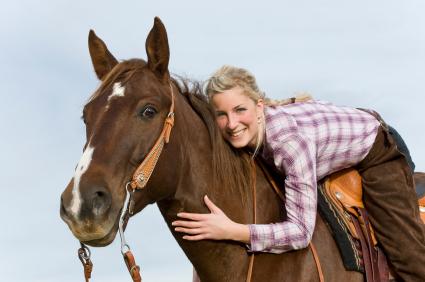Do You Really Love Your Horse? Act Like It!

Many horse owners claim to love their animal and offer it the best quality of life, but few actually do. Particularly in the realm of competitive riding, owners seem to prioritise the winning of ribbons and the acquisition of professional riding accolades over the wellbeing of the animal itself. It doesn't take a genius to recognise that there is something fundamentally wrong with this attitude. Owning a horse is a massive responsibility and being a good owner means both healthy communication with your animal and healthy diet as well. By prioritising your horses's psychological and physical wellbeing, you will be on your way to building a relationship with your horse that by far surpasses any of the more formal successes you might achieve in competitive riding.
Throw 'tradition' Out the Window
Perhaps the biggest misnomer in the equestrian world is the idea of 'traditional horsemanship'. In today's terms, this phrase has come to represent the dominant, mainstream approach to horsemanship, in which unwarranted discipline and punishment is rife and in which owners prioritise their own successes over the wellbeing of their animals. In truth, there is nothing 'traditional' about this method, except that it has for the most part been carried down through generations of affluent horse-owners, who viewed their animals simply as a reflection of their own power and status. Anything involving animals was seen as a sport, not a responsibility. The gaucho's of South America who helped to develop horsemanship certainly didn't give birth to this 'tradition'. If you do truly care for your horse, you must prioritize its wellbeing. Look into one of the emerging natural approaches to horsemanship and begin to develop a lasting and meaningful bond with your horse.
Give Your Horse What It Needs
Many owners seem to think that feeding their horse a generic diet is acceptable. If your child was gluten intolerant, you wouldn't force-feed it bread would you? The same applies for horses. Each animal has specific dietary requirements that need to be met. If you fail to recognise and act on this, you are seriously decreasing your horse's lifespan and right to a good quality of life. Speak to a vet or a natural horsemanship instructor about your animal's dietary requirements, then contact a reputable supplier such as Equiform Nutrition to purchase feed and supplements that will help to enrich your animal's life.
Do It Now
Caring for your animal isn't difficult. It just takes a little thought, and a different approach to what we have come to think of as 'traditional' horsemanship. Look at natural approaches, determine a healthy diet for your animal, and the benefits will be plain to see.
